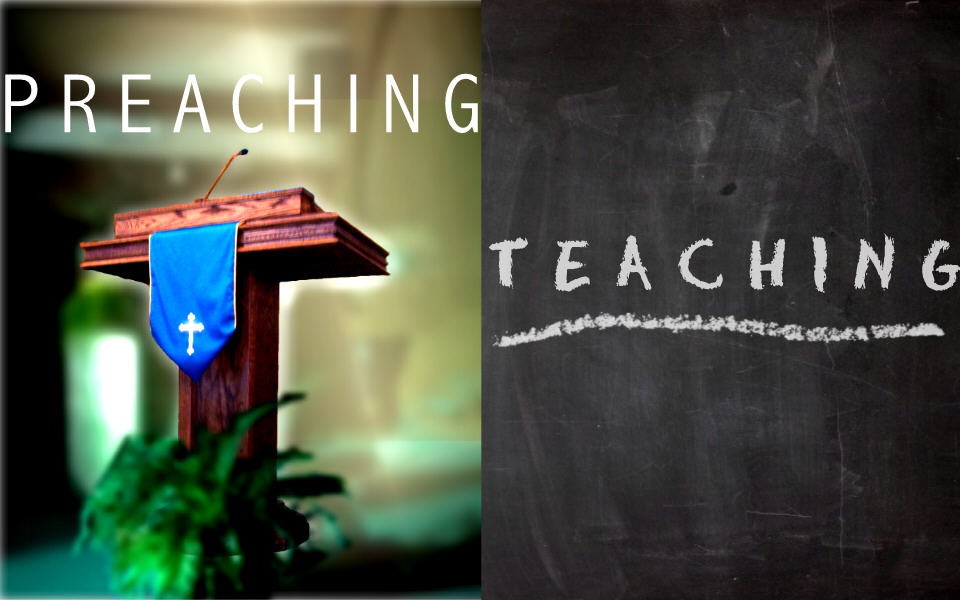Teaching and Preaching in the Koinonia Family of Friends

Teaching
We are not the first generation to ask the questions of God and the meaning of life. Somewhere along the path of evolution, our hominid ancestors arrived at a level of consciousness where such questions were entertained and embraced. As far back as history will allow us to go, human beings have always pondered the relationship between the sacred and the secular. It is the greatest folly to think that we have nothing to learn from the past, and if teaching is at least in part an activity that enables us to learn from the past, it should be clear that teaching is integral to our own advancement.
If we want to expand our horizon, if we are confronted by an issue, then certainly we should ask how others in the past have dealt with that concern. The caveat, of course, is that as we look at the thought of others, we must be critical, in order to determine if the perspective of others speaks sufficiently to our situation. Does teaching have any role in the future of the koinonia family of friends? Simply, yes.
Unfortunately, “teaching” is often understood as a noun rather than a verb, a body of doctrine that has been formulated in the past and is now handed down as authoritative rather than informative. Creeds that were formulated by councils of the Christian church in the early formative years are recited today as gospel truth. The Bible is viewed by many as the ultimate and absolutely authoritative answer book, the word of God, rather than a compilation of reflection by those who went before us in this quest of faith and encounter with the divine. It is incumbent upon us to listen to and learn from the past (those who do not learn from history are doomed to make the same mistakes), but the past must be used as a guide and not a pattern.
Not only do we learn from the past, but we also learn from one another in the present. No one has perfect understanding, no matter how hard we try, so we must listen to one another. And those persons to whom we must listen include not only those who share our community and our perspective, but also those who differ from us. We all have a tendency to create our own little world, a perception of reality that is always somewhat distorted, and we need others to be critical of our parochialism and to open our eyes to new dimensions of reality. Teaching and learning together form a single process: we need to teach and to learn from one another, past and present, lest we become closed in upon ourselves.
Preaching
“Preaching” is a word much maligned in our culture- and justifiably so. It has the connotation of forcibly communicating the truth to others who are sinful or at least ignorant. How many times have we heard preachers rant and rave about how they have the answer and you don’t?!
On the other hand, if we use the word with a tone that is confessional rather than dogmatic, preaching can be as enlightening as teaching. Often in gatherings the word used to describe the monologue is reflection, or meditation. The person delivering the message is not a preacher, but a speaker. Often there is the opportunity at the end of the gathering for others to engage in dialogue with the speaker. It is a time when one person can basically say: This is how I see it. What do you think? It is a laying bare of personal faith as well as a word to others asking them what they believe. It is a confession of trust that can enable the hearer to find comfort and consolation in face of adversity.
In addition to having this “sharing” tone, preaching can also be declarative. It can be an announcement, a proclamation, presented as a statement of fact that holds true whether or not you or I believe it. A street corner preacher may proclaim to passersby: “God loves you”, and that may have good effect. But in the context of the koinonia, in the context of a caring and sharing community, proclamation is embedded in confession. The preacher is not speaking to the congregation, s/he is speaking with those gathered. It is dialogue in the form of monologue.
So, yes, as the koinonia, both individually and collectively, seeks to comprehend the issues of God and the meaning of life, teaching and preaching continue to play a central role. Although not the whole, they are a part of the conversation, a verbal/written communication integral to the life of the community.
